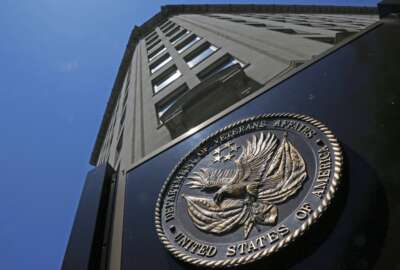DoD takes ‘fix our computers’ plea to a whole new level
In today's Federal Newscast: The Postal Regulatory Commission remains at full strength as it implements its 10-year reform plan. The Department of Homeland Security...
- The IRS plans to furlough most of its employees if lawmakers do not avert a government shutdown, leaving taxpayers with fewer options to get help. About two-thirds or 60,000 IRS employees will stay home if Congress triggers a shutdown at the end of the week. That means roughly 46,000 phone calls every day will go unanswered. The IRS will also shutter more than 350 centers across the country that provide free public tax assistance. The IRS plans to keep 30,000 employees working during a shutdown to prepare for next year’s filing season. (IRS plans to furlough two-thirds of workforce if Congress triggers government shutdown - Federal News Network)
- With a government shutdown closing in, one in three feds has the same top concern. Missing a paycheck is the number one worry for about 35% of federal employees. That is according to the results of a poll Federal News Network conducted this week. If there is a government shutdown, hundreds of thousands of feds may have to go without pay. But that is not the only concern on federal employees' minds. Many others say they are worried about the length of a shutdown and the negative impact it could have on the public's trust in government.(Poll: 1 in 3 feds say missing a paycheck is their biggest shutdown concern - Federal News Network)
- The departments of Commerce and Homeland Security are among the agencies which sent emails to employees yesterday telling them to prepare for a government shutdown. Commerce Secretary Gina Raimondo told employees they will be notified if they are furloughed. DHS leaders said they updated their contingency plans to detail which functions will continue if a lapse in appropriations happens. The Office of Management and Budget is expected to issue more guidance as the shutdown becomes more imminent.(Some agencies telling employees to prepare for a government shutdown - Federal News Network)
- The National Security Agency is consolidating its artificial intelligence efforts under a new organization. The NSA is setting up an Artificial Intelligence Security Center. It will be housed within the agency’s Cybersecurity Collaboration Center, where it often holds unclassified meetings with the private sector. The idea behind the new center is two-fold: the NSA wants to establish strong cybersecurity standards for the AI systems the U.S. military and intelligence agencies are developing, as well as ensure that foreign adversaries do not steal or tamper with U.S. advances in AI. (NSA establishing “Artificial Intelligence Security Center” - Federal News Network)
- The Defense Department is taking the "fix our computers" plea to a whole new level. The uproar over laptops, desktops and other common IT equipment that did not work well is prompting another major change. The DoD chief information officer is creating a user experience portfolio office and will issue a new memo to services and defense agencies. DoD CIO John Sherman said the idea is to bring some standardization to the refresh cycle across all of the military and ensure user experience is a part of every technology initiative. The new portfolio office should be set up in the coming months and the memo is in the early stages of development. ( - )
- Agencies have more time to use what's called "a flexibility" for onboarding military spouses. A federal hiring authority, first implemented in 2021, aimed to give military spouses more job opportunities in government. The authority was originally set to end this year. But the Office of Personnel Management is extending the eligibility date for the hiring authority. The program will now sunset at the end of 2028. The extension comes after an executive order President Biden signed in June. He called on agencies to do a better job hiring and retaining military spouses, who often face job challenges due to the mobile lifestyle of military service.
(Noncompetitive appointment of certain military spouses - Office of Personnel Management)
- The Department of Homeland Security plans to grow the use of a special hiring system for cybersecurity positions. In its latest IT strategic plan, DHS said it will expand the Cybersecurity Talent Management System across all components. Right now, it is only used by a few of them. And DHS plans to leverage the system to fill more jobs, including positions that support artificial intelligence and data science. DHS is also setting up an IT training academy to ensure new recruits are well versed in how to operate the department’s technology.(DHS IT strategic plan - DHS)
- The Postal Service’s regulator is keeping a full slate of members at a busy time in its oversight work. The Senate confirmed former USPS executive Thomas Day to serve a six-year term on the Postal Regulatory Commission (PRC). He will take over for Vice Chairman Mark Acton, whose tenure on the board ends next month. The Senate also approved commissioner Robert Taub to stay on at the PRC for a third term. The PRC is focused on how the Postal Service implements its 10-year reform plan, which includes a major shakeup of USPS facilities nationwide. (Confirmation of Thomas Day and Robert Taub - Senate Homeland Security and Governmental Affairs Committee )
Copyright © 2025 Federal News Network. All rights reserved. This website is not intended for users located within the European Economic Area.
Peter Musurlian
Peter Musurlian is a producer at Federal News Network.
Follow @PMusurlianWFED
Related Stories
Exclusive
Government Shutdown
Read more






